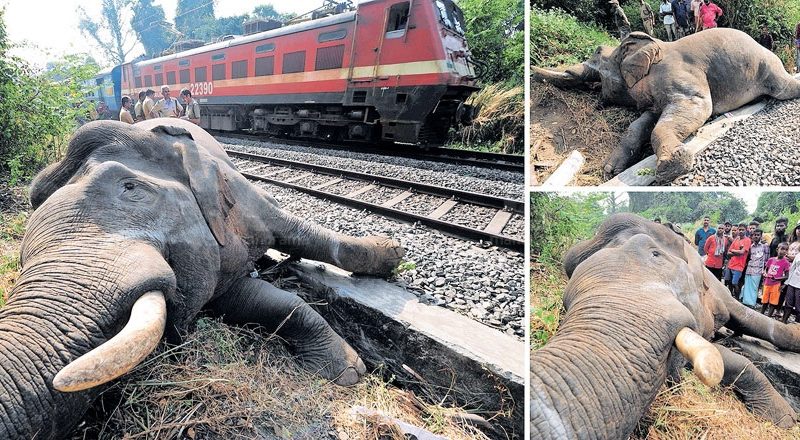49 elephants killed in Railway accidents between 2016-18: MoEFCC
In 2016, the Ministry of Environment, Forest and Climate Change (MOEFCC) released ‘Eco-friendly measures to mitigate impacts of linear infrastructure’, an advisory document for mitigating human-animal conflicts. Despite this advisory, and many others issued by conservationists and organisations, deaths of wild animals in road and railway accidents have continued unabated.
The MoEFCC told the Rajya Sabha, in response to a question by MP T. Subbarami Reddy, that 49 elephants were killed in Railway accidents between 2016-18 (nine in 2015-16, 21 casualties in 2016-17 and 19 in 2017-18). In the same 3-year period, three tigers were killed in road accidents while eight tigers were mowed down by trains.
Three lions died in a train accident in the Amerli district of Gujarat in December 2018. Prior to this, 10 lions died in railway and road accidents between 2016-2018.
West Bengal and Assam together accounted for 37 out of the 49 deaths of elephants on train tracks across the country. While the number of elephant casualties on railway tracks in West Bengal has fallen from five in 2015-16 to three in 2016-17 to two in 2017-18, the number of elephants dying in railway accidents in Assam has increased in the same period — the northeastern State recorded three elephant deaths by accidents in 2015-16, which increased ten in 2016-17 and 14 in 2017-18.
According to the Ministry, several notifications have been issued, including one on December 28, 2016, to Chief Wildlife Wardens, to implement precautionary measures for minimising elephant deaths caused by train accidents.
Another component of infrastructure — low hanging or sagging electric wires — become a major threat to wildlife, particularly elephants. Between 2009 and 2017, 461 elephants have been electrocuted in different parts of the country. On January 12, there were reports of two electrocuted elephants in West Bengal’s Paschim Medinipur district.
Jose Louise, a conservationist with the Wildlife Trust of India (WTI), which has developed a mobile app for monitoring road kills, said that when the infrastructure was developed, “it was never thought that it could lead to the death of so many wild animals.” While Mr. Louise notes that experts consider wildlife corridors while planning new infrastructure projects, he feels that data generated from the app can provide practical answers on regulating traffic and reducing road kills in existing projects in the coming years.
Originally published by The Hindu




